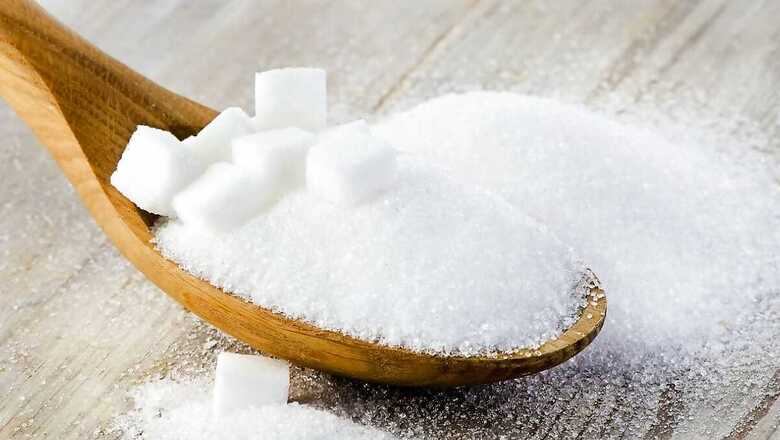
views
Who does not like a sweet treat in the middle of the day? Be it chocolates, brownies or ice creams, we can’t stop ourselves from indulging in sugary foods. It is common knowledge that too much sugar intake can have a detrimental effect on our health and lead to obesity, skin ageing and diabetes as well. But, how much sugar can a person intake per day?
One of the first things that comes to our mind about excessive consumption of sugar is weight gain. But is it true? Well, sugar does enhance the taste of foods it is added to. But, as per reports, sugar does not have any direct fat-storing properties, but it aids in weight gain. Excess sugar is found in processed foods and hence increases calorie intake. Hence, when someone eats too much processed foods, like sugars and fats, it will lead to weight gain.
A study published in the journal Nutrients found that eating sugar alone does not increase calories. But, when it is added to foods, it can lead to overeating which will increase body weight. A study was conducted where the participants who were trying to lose weight were given a high-sugar diet. However, in 6 weeks it was observed that they lost enough weight. It was found that sugar when combined with other other foods determines weight gain.
What is the recommended amount of sugar per day then? Well, consuming sugar in moderation is fine. As per government regulations, the amount of total sugar one adds to food and drinks should not exceed 5 per cent of the daily calorie intake.
Meanwhile, dietitian Rujuta Diwekar explained the WHO guidelines regarding sugar intake sharing that one should try to reduce sweetness in their diet, but not in fruits like mangoes, watermelon and other fruits. One can continue taking sugar in tea, coffee, sherbets, homemade laddoos and kheer. One needs to avoid packaged foods like cereals, juices, colas, energy drinks, ketchup, jams, cookies, biscuits, etc.
The United Nations (UN) also advised against the consumption of Non-Sugar Sweeteners (NSS) or artificial sweeteners such as aspartame, acesulfame K, cyclamates, neotame, saccharin, sucralose, stevia and stevia derivatives.




















Comments
0 comment